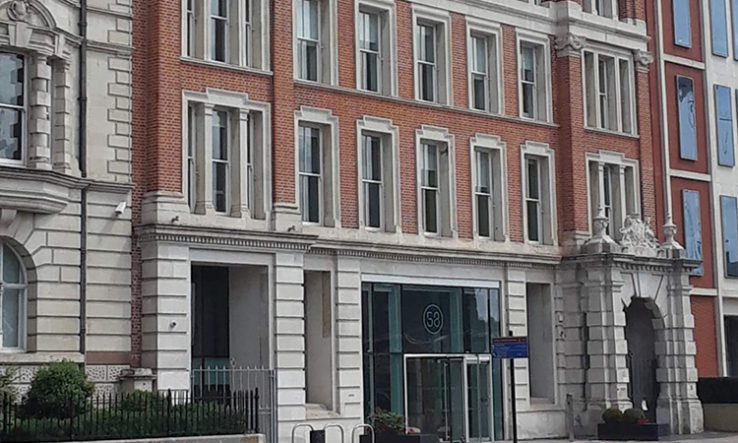
Image: Mico Tatalovic for Research Professional News
Some researchers say UKRI and NIHR should have collected ethnicity data on applicants
The UK’s national R&D funding agency has been embroiled in a row following criticism that none of the principal investigators awarded its recent grants on Covid-19 and ethnicity are Black.
UK Research and Innovation, in collaboration with National Institute for Health Research, awarded £4.3 million to six projects led by seven PIs to study the disproportionate Covid-19 death rates among people from Black, Asian and minority ethnic backgrounds.
But Addy Adelaine, a Black academic and researcher in inclusion and accountability tweeted that “£0 has gone to Black academics/researchers” and added: “Black academics do exist—they are out there with expertise and PhDs.”
UKRI responded that they “are conscious that Black people are underrepresented throughout academia in the UK” and that they are “committed to increasing the representation of Black and other communities throughout our work, including in our funding”.
UKRI also noted that Black researchers have been funded by this call as part of investigators’ leadership teams, and some winning PIs, such as Thomas Yates, professor at University of Leicester, noted BAME team members that were part of the winning bid. Yates said that “talking from a University of Leicester perspective, the awards went to a diversity of researchers reflecting our equally diverse city”.
Following the exchange, Adelaine, who is also CEO of the social justice organisation, Ladders4Action, told Research Professional News the need for equality in funding decisions is more urgent than ever in the current crisis.
“Drawing from my studies on disasters and organisational accountability, history repeatedly warns us that inequality and voicelessness are amplified in a crisis,” she said. “Considering equality becomes more important, not less important. Those who are most affected must be engaged in leading the response.”
Maria Arruda, a research development manager at the University of Nottingham and chair of the university’s Black and Minority Ethnic staff network, agreed, describing the underrepresentation of Black researchers as “just another proof that we need to rethink race inequality in the context of the UK research and innovation ecosystem”.
“This is even more urgent when studying and addressing health issues that disproportionately affect the BAME community in general and Black individuals in particular,” she told Research Professional News.
UKRI said they did not collect information from applicants on their protected characteristics, as “this was a rapid response off-system call, reflecting the need for research to begin immediately, with a short application form” but promised that “this information will be collected in future calls.”
But both Adelaine and Arruda—and some of the PIs who did win an award—believe the funder should have collected ethnicity data on applicants.
“The data should have been collected as it is good practice to do so: it comes across as contempt not assessing race background and other protected characteristics in this day and age,” said Arruda.
Ultimately, she says a “cultural shift” that would “entail rewarding potential instead of outcome, would support designing a truly effective racial equality agenda”.
Robert Aldridge, a consultant in public health at University College London, whose team was awarded a £1.4 million grant from UKRI to track Covid-19 in minority ethnic and migrant groups, agreed that better data collection was needed.
“Grants must be awarded in a fair, transparent and representative way,” he told Research Professional News. “This requires action and co-ordination in a number of areas in order to address the systemic issues around inequality.
“Important steps include collecting data and reporting on the protected characteristics of applicants and ensuring diversity of the panels that make research funding decisions.”
Aldridge said his research team had been “carefully and deliberately put together to ensure that it is multidimensionally diverse by gender, ethnicity and career stage”, adding that they would shortly be publishing a diversity statement with details of the full research team.
Shaun Treweek, a professor of health services research at the University of Aberdeen who was awarded £15,000 to develop a framework to support inclusion of BAME participants in Covid-19 research, said: “It would have been a good thing to raise ethnicity on the form, which would have made researchers, ourselves included, think about the researchers in the team, not only our patient and public partners.”
He added that his team’s experience is that “it is not routine in the UK to think about ethnicity when designing research and that means people need to be asked to think about ethnicity directly. Everyone needs to get better, including ourselves.”
One way to improve, he said, is to ask questions in the grant form “to make researchers think about ethnicity in trial design”.
A UKRI spokesman said: “Informed by engagement with our communities we are developing actions to tackle inequalities and under-representation and will publish UKRI-wide analysis of detailed ethnicity categories in the near future.”
An NIHR spokesperson said they “recognise there are structural barriers to members of the Black community within the research system” and are taking steps to address this.
These steps include a commitment to publish annual data on NIHR’s levels of equality, diversity and inclusion in relation to race and other protected characteristics, as well as the diversity data on applications and awards for each of their research and training programmes, and the data on the constitution of the committees, boards and groups that advise their work and the diversity of NIHR workforce.
“These are only the first steps towards identifying the causes and extent of any inequities in NIHR training, research and delivery, and we are working with others to understand the barriers better and develop interventions that work,” they said. “More will be needed to meaningfully embed equality, diversity and inclusion, so that we attract the best people with the best ideas and research, whatever their race or background.”